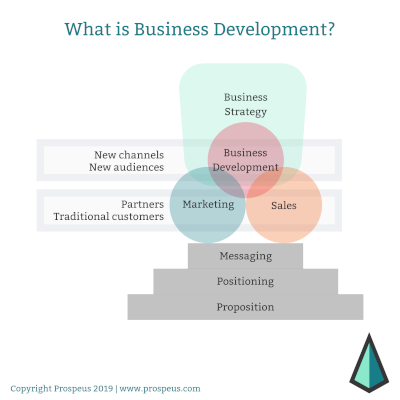Is your sales process more Frankenstein than frankly strategic? Inspired by Johnny Cash’s song about a man who builds a Cadillac from parts stolen one piece at a time, Keith Smith chats with CEO of new business agency Incite – Alex Kirkpatrick – to find out how to streamline your sales process and have it runnin’ just like a song.
“Now the headlight was another sight
We had two on the left and one on the right
But when we pulled out the switch all three of ’em come on.”
Are you working with a Psycho-Billy Cadillac sales
department? If so, you’re not alone.
It’s only natural that after a few years, a company’s sales effort
might require an a-dapter kit, just like the song “One Piece at a Time” – a
humorous tale about a man trying to build his own Cadillac by stealing
occasional parts from the assembly factory where he worked.
In the rush to fill order books, a company might be willing
to take on new business that meets a financial deadline but at the same time, places
the resources of the business under unnecessary strain. So much strain that
when the right piece of business does come along, the company’s departments are
so stretched that they can’t do the job that they really want to do.
It’s a direct result of an uncoordinated sales strategy, or
perhaps no sales strategy at all. Without a firm hand on the sales tiller, any
ship can go adrift and before you know it the course correction required is
drastic.
Sitting down with new business expert Alex Kirkpatrick, who runs one
of the UK’s most successful new business generation agencies, Incite, it becomes clear that a
company needs to focus on sales from the get-go. Working with a well-planned
marketing drive, sales can literally make themselves, but working in an
uncoordinated fashion, they might end up costing more than money.
Alex’s consultancy works with the most demanding of client
types – marketing and advertising agencies, but his principles have been
learned over the course of more than two decades and can easily be parlayed into
any b2b or b2c environment.
Firstly, any new business isn’t necessarily good new
business. As Alex says, there are many forms of bad new business but this
number is far outweighed by the number of potentially bad clients: “Looking at
long lists of data, making notes such as:
‘likely no money’, ‘would never work with us’, is a surefire way to
curtail your market and destroy any chance of winning great clients from
outside of your usual target suspect list.”
Alex recommends creating a client profile – an imaginary
client that has all the features your company would find attractive: “from the
type of person and internal culture you like working with, all the way through
to the kind of product they sell and buyers they target.”
“The back end looked kinda funny too
But we put it together and when we got through
Well, that’s when we noticed that we only had one tail-fin”
Obviously, not all prospective clients have the same degree
of appeal, so Alex always advises his clients to divide them up into three categories:
‘Must work with’, ‘Should work with’ and ‘Could work with,’ and typically, this
list would be like a Chevvy tail fin: sharp at the top and thicker at the
bottom.
When you don’t have a coordinated strategy, you can end up
with ‘Frankenstein’ sales. These are sales without a framework or, as Alex
sometimes finds, they are over-complicated by converging activities on social
media and in different channels at different times: “If you think about the
Must, Should, Could structure, then there are three established approaches to
effectively target these markets: Account Based Marketing (ABM), InBound Marketing
and Outbound Marketing.”
The ‘Must’ category (the thinnest) tends to be more one-to-one marketing-based. Creative and personal. However these take time and patience and could potentially take up to three years to come to fruition, depending on review anniversaries.
The ‘Should’ category can be broken down into common sectors and given the outbound marketing treatment, so sales calls and/or direct marketing using case studies of similar work or in similar sectors.
The ‘Could’ category is your widest possible audience and the right marketing treatment for this is usually inbound. However, as Alex advises, this is where the science part comes in because you know less about these prospects than you do the other ones, so you’ll need to create content tailored to very specific personas and you don’t know these people.
And while this may seem like a lot of work, don’t worry,
help is at hand. In fact help might actually be in the same building as you, so
it’s always worth introducing internal sales incentive programs to draw out any
prospective closers working in the same company as you.
“Now gettin’ caught meant gettin’ fired
But I figured I’d have it all by the time I retired
I’d have me a car worth at least a hundred grand.”
If your plan is to use just word-of-mouth to sustain your
business, think again there Red Ryder. As Alex says: “90% of agencies rely on
referral new business for at least some part of their journey. Sadly for too many it is often how they start
and grow and why they decline and ultimately fail.”
You will always need an ongoing new business or sales
program because if you don’t, when you need it, it’s not there. If you rely on
referrals all the time, you are not in control of your destiny and companies
that do this “..are whatever they are referred to be,” according to Alex.
Alex suggests taking charge of your own sales destiny and to
add proactive marketing campaigns that best enhance your company’s brand
values: “Marketing your own brand effectively allows you to test technologies
and tactics, creating cases and expertise that can be proved and sold to
clients.”
“So we drove up town just to get the tags
And I headed her right on down main drag
I could hear everybody laughin’ for blocks around
But up there at the court house they didn’t laugh
‘Cause to type it up it took the whole staff
And when they got through, the title weighed sixty pounds.”
So the moral to the story is to be prepared for all new
business eventualities. A company needs to be agile enough to be able to
effectively react to all potential new business events – be it a cold request,
a meeting follow-up, a call, an email, whatever the circumstance; your business
needs a response that flatters the new business prospect.
“Make it look amazing,” said Alex. “Graphic design is so
important, irrespective of whether your output is an aesthetic one, client
buyers still care about design.”
You can adjust the response according to the type of lead,
but don’t over-egg the omelet: “Better to get something good faster, than
something amazing late,” says Alex. “Ultimately, look at your deck as a
person.” Don’t drone on about your own accomplishments. Keep it tight. Keep it
focused and keep it short because the prospect can always ask for more if
they’re interested.
And as a CMO, it is absolutely part of your role to be
contributing to the direction of your company’s new business strategy, working
hand in hand with the business development or sales team: “CMOs should have a
responsibility to sit at the heart of a company’s growth plan, to help develop
a position, a proposition, build awareness, create cut though and increase
conversation,” said Alex.
To help your company maximize its sales effectiveness, the
following areas can be included as part of your bailiwick:
- Top (blogs and content), mid (case studies) and
bottom funnel (products, process, proposals) content creation and promotion
- Search engine marketing
- Social outreach and management
- Events and Webinars
- Re-targeting through biddable media
- Lists and directories
- Intermediaries
- PR and speaker opps.
- Shows and expos
- CRM
- InBound platforms
- Product development
- Trends and innovations
- Compliance
When all is said and done, marketing and sales need to be as
harmonious as Johnny Cash and June Carter Cash. One works so much better with
the other when they both have the same intent.
Piecing sales campaigns together and being reactive, not
proactive can wrong foot any company.
But when sales and marketing work hand-in-hand the effect
can be stunning – as stunning as a jet black, fin-tailed 1960 Cadillac.


